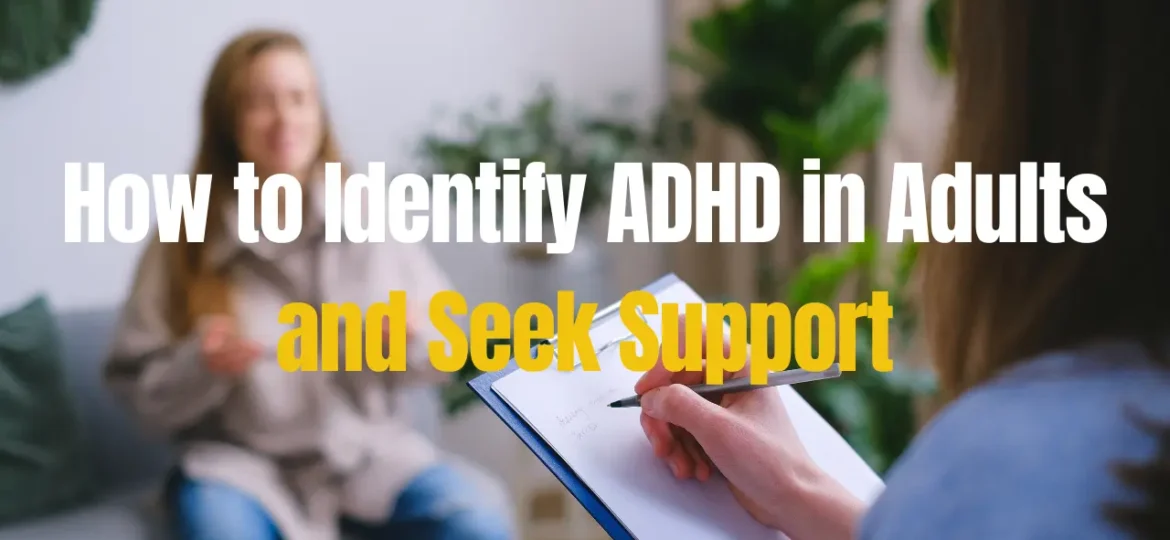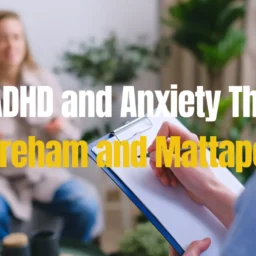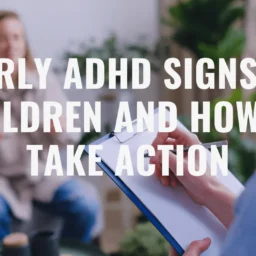
ADHD, or Attention-Deficit/Hyperactivity Disorder, is often linked to school-age kids. They may find it hard to sit still, pay attention in class, or follow directions. But what happens when these children grow up—or when someone reaches adulthood without ever being diagnosed? For many adults, ADHD doesn’t disappear; it simply looks different.
In Massachusetts, especially near Dartmouth, more adults are noticing ADHD signs in their lives. These signs, like disorganization and chronic procrastination, are often misunderstood. Many see them as mere personality flaws. But the truth is, untreated ADHD can deeply impact careers, relationships, and personal well-being.
This article explores how to spot adult ADHD symptoms. It covers the importance of diagnosis and various therapy options in MA. You’ll learn about adult focus therapy and ADHD management strategies that can change daily life. If you’ve ever wondered why you can’t seem to stay focused or manage time well, this might be the clarity you’ve been searching for.
Recognizing the Symptoms of Adult ADHD
Adult ADHD usually doesn’t show as hyperactivity. Instead, it often affects work, relationships, and self-esteem in more subtle ways. Everyone feels scatterbrained sometimes. But for people with ADHD, these challenges happen often and are much stronger.
Here are common adult ADHD symptoms:
- Difficulty focusing on tasks or conversations
- Frequent forgetfulness, like missing appointments or misplacing items
- Disorganization at home or work
- Impulsive decisions, from spending money recklessly to interrupting others
- Chronic lateness or time blindness
- Restlessness or inability to relax
- Procrastination followed by panic, especially with deadlines
- Emotional dysregulation, such as mood swings or irritability
These symptoms may lead to misdiagnoses, such as anxiety or depression. That’s why seeking a specialized ADHD diagnosis for adults in Dartmouth or nearby areas is essential for accurate treatment.
The Importance of Early ADHD Diagnosis for Adults in Dartmouth
Many adults live for decades unaware they have ADHD. They may feel “lazy” or “incompetent,” never realizing a neurodevelopmental condition is at the root of their struggles. A good diagnosis can change everything. It helps you understand yourself better. Plus, it opens the door to therapy, accommodations, or medication.
In Dartmouth and all over Massachusetts, trained clinicians provide assessments. They look at your history, current symptoms, and daily functioning. These evaluations help distinguish ADHD from other conditions. These include anxiety and trauma, which can have similar symptoms.
Early diagnosis lowers the chances of long-term problems. These include job instability, relationship conflict, and low self-esteem. With the right support—such as adult ADHD therapy MA options—you can shift from self-blame to self-compassion and growth.
Getting an Accurate ADHD Diagnosis in Dartmouth
If you suspect you may have ADHD, the first step is finding a qualified professional. In Massachusetts, there are many psychologists, neuropsychologists, and psychiatrists specializing in ADHD evaluations. Many are based in Dartmouth or offer telehealth for convenience.
You can begin by:
- Asking your primary care physician for referrals
- Searching directories like Psychology Today for ADHD-specialized clinicians
- Looking into local mental health centers or university clinics
- Exploring telehealth platforms that offer assessments
Choose someone with experience in diagnosing ADHD in adults, not just kids. The condition can look different in various age groups and genders.
What to Expect During a Professional ADHD Evaluation
A comprehensive adult ADHD evaluation involves multiple steps:
- Clinical Interview: The clinician will ask about your personal, academic, and work history, and how current symptoms impact your life.
- Standardized Questionnaires: Tools such as the Adult ADHD Self-Report Scale (ASRS) and Conners’ Adult ADHD Rating Scales are widely used.
- Collateral Input: Input from a spouse, close friend, or family member may be requested for additional insight.
- Cognitive Testing: Some professionals include attention, memory, or executive function tests.
- Rule-Outs for Other Conditions: Conditions like anxiety, bipolar disorder, or PTSD can sometimes mimic ADHD.
After the assessment, you’ll receive a formal diagnosis and recommendations for treatment. Even if ADHD isn’t confirmed, the process can still uncover helpful insights about your mental health. For many, this experience is a powerful first step toward healing.
Therapy and Treatment Options for Adults with ADHD
Once diagnosed, many adults feel both relief and uncertainty. Relief in finally having an explanation and uncertainty about what comes next. There are many options for adult ADHD therapy in MA. You can choose from one-on-one counseling or group programs. These programs help with the specific challenges of living with ADHD.
Here are some therapy modalities commonly offered:
- Cognitive Behavioral Therapy (CBT): Helps you recognize negative thought patterns and develop healthier behavioral strategies.
- Coaching & Skills Training: Focuses on executive function skills like time management, prioritization, and organization.
- Mindfulness-Based Therapy: Supports emotional regulation and present-moment awareness.
- Psychoeducation: Learning about how ADHD works in the brain helps normalize your experience and reduce shame.
- Group Therapy: Offers peer support and shared learning.
In Dartmouth and nearby Massachusetts towns, mental health clinics and private therapists usually offer services for “adult ADHD” or “executive function coaching.””
How Adult Focus Therapy in MA Helps Build Coping Strategies
Adult focus therapy targets focus issues linked to ADHD in a personalized way. It goes beyond traditional talk therapy by helping clients:
- Break large tasks into manageable steps
- Use visual tools like calendars and timers
- Develop realistic routines that align with their natural energy cycles
- Manage distractions and build sustained attention
- Build positive reinforcement systems to encourage motivation
You can often find this therapy with specialists in adult-focused MA settings, like private practices or hospital programs. It also works well with other treatments, like medication or coaching. This gives adults a complete toolkit for success.
Many adults share their stories on platforms like podcasts. They show how focus therapy changed their lives. These stories can be comforting and motivating, especially for those just starting out.
Long-Term ADHD Management Strategies for Adults in MA
Managing ADHD is not about “curing” it—it’s about learning to live with it effectively. That’s where long-term ADHD management comes in. Think of it like managing diabetes or asthma: with the right support, people with ADHD can lead focused, fulfilling lives.
Strategies that work include:
- Medication: Stimulants (like Adderall or Ritalin) and non-stimulants (like Strattera) help regulate dopamine in the brain. Medication is most effective when monitored by a knowledgeable prescriber.
- Routine-building: Creating a structured day—consistent wake-up times, planning meals, scheduled breaks—can reduce overwhelm.
- Digital tools: Apps like Todoist, Forest, or Focusmate are designed with ADHD brains in mind.
- Exercise and sleep hygiene: Physical activity helps regulate mood and focus, while poor sleep can worsen symptoms.
- Community support: ADHD support groups or online forums provide validation and practical tips.
In Massachusetts, many adult mental health providers offer ADHD management services. These services include medication, counseling, and skills coaching. Some programs also offer workshops for spouses or employers to help foster ADHD-friendly environments at home or work.
And don’t underestimate the power of stories. Podcasts that feature adults with ADHD, particularly those diagnosed later in life, can create deep connections and offer valuable insights. Hearing how others navigate the ups and downs of ADHD management can be just as educational as therapy itself.
Conclusion
Living with undiagnosed ADHD as an adult can feel like navigating life on hard mode. Deadlines slip away, conversations fade mid-sentence, and even small tasks feel tough. You may have spent years blaming yourself, wondering why things that seem so simple for others are so complicated for you. But what if it’s not a character flaw—but a condition that simply needs the right support?
Spotting ADHD signs in adults isn’t just about labeling issues. It’s about regaining your self-worth and finding tools that help your brain instead of hindering it. Getting an ADHD diagnosis in Dartmouth or anywhere in Massachusetts can bring real relief and change. Diagnosis doesn’t define you—it empowers you.
Therapy options, especially adult ADHD therapy in MA, are tailored to the modern realities adults face. Adult-focused treatments can help you manage a tough job and parenting. They guide you in creating routines and developing coping skills. Plus, they help you see the unique strengths that ADHD offers. With methods like adult focus therapy or structured coaching, you can understand your habits. This helps you find a rhythm that feels right.
Long-term ADHD management in MA also means developing self-compassion. You start to see your distractibility, impulsivity, or forgetfulness not as failures. Instead, view them as symptoms that come with strategies. Therapy, lifestyle changes, and sometimes medication can make life easier. It may not be perfect, but it’s definitely more in your control.



